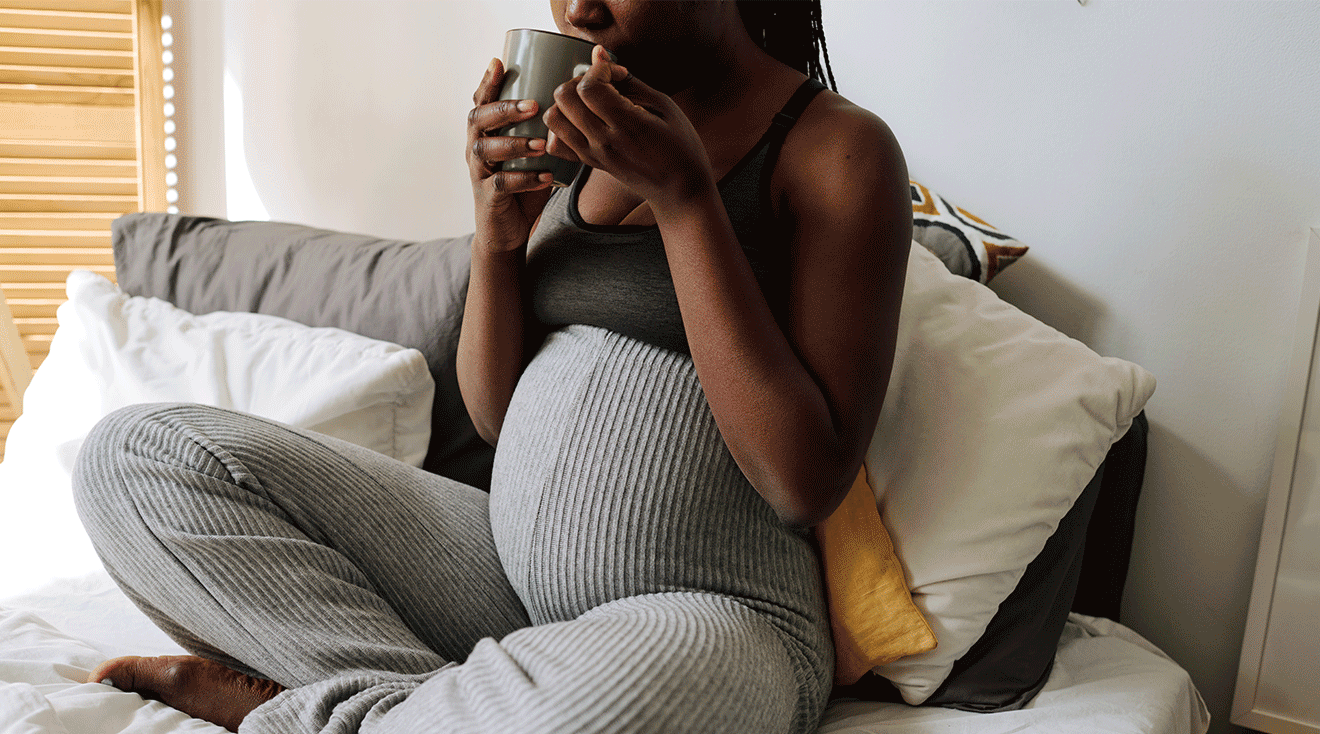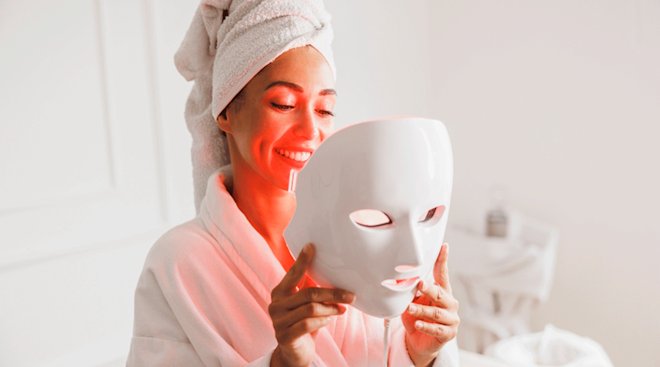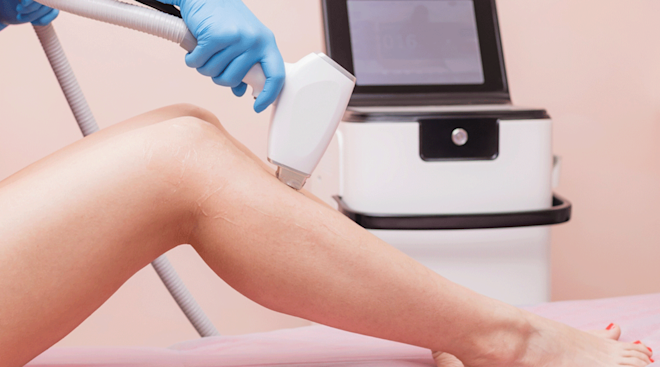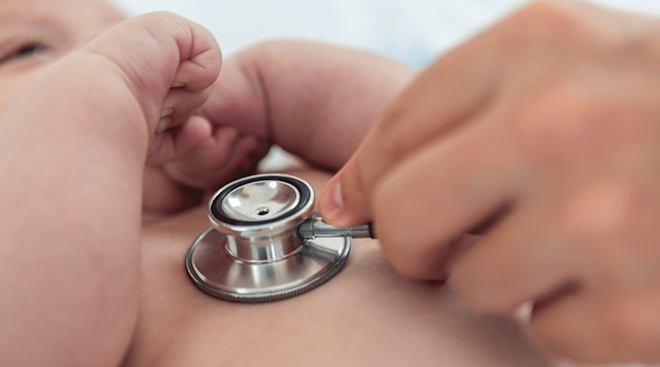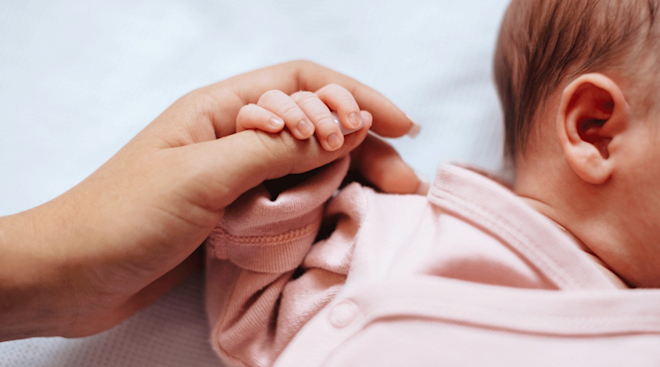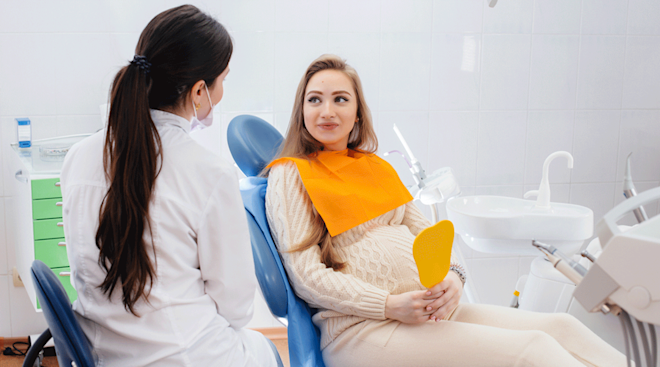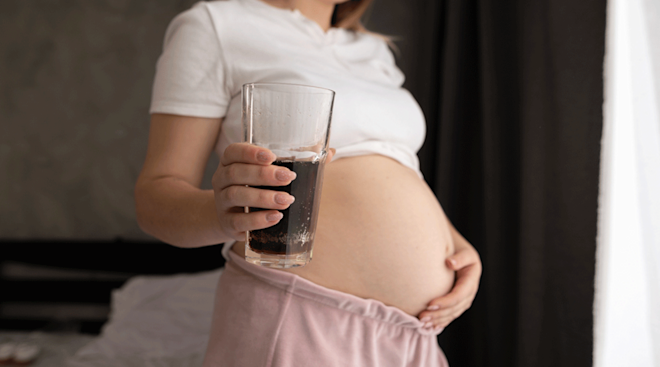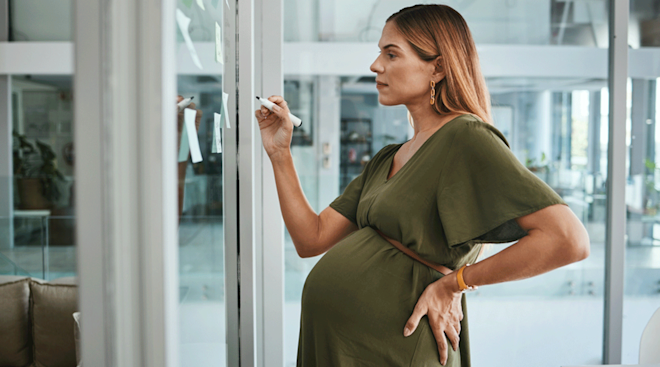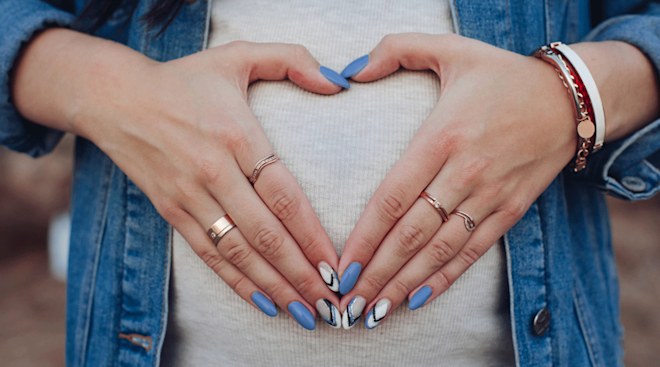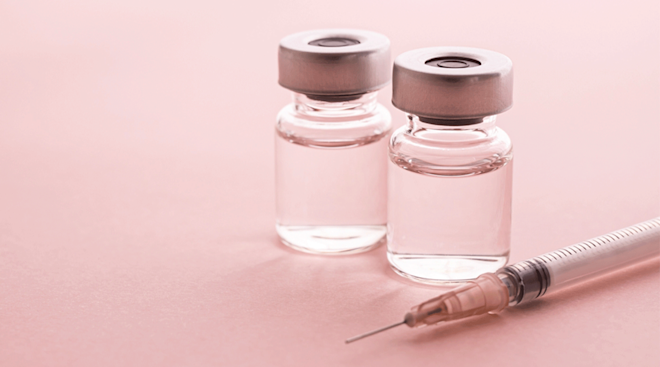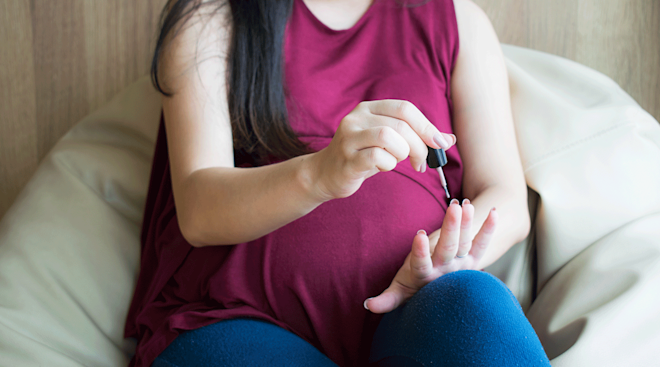10 Things You Actually Don’t Need to Give Up During Pregnancy
There are plenty of things you’ll need to avoid during pregnancy, including alcohol, hot tubs, hot yoga, raw and undercooked fish and meat (bye for now, raw sushi and carpaccio) and so much more. With all the rules and restrictions, you’ll be glad to hear there are plenty of things you don’t need to give up while pregnant. (Of course, every pregnancy is a little different, so it’s best to talk to your doctor if something’s worrying you.) Read on to learn from experts a few things you don’t necessarily need to say sayonara to while pregnant.
Some pregnant women and parents-to-be believe that once they’ve successfully conceived baby, their sex lives need to take a backseat until after birth—but that’s far from the truth. While there are certain complications and conditions that will limit your ability to engage in certain frisky activities, for the most part, having sex is totally safe while expecting, says Rebekah Mustaleski, CPM-TN, a certified professional midwife and compression director with Motif Medical. Once you pass your first trimester—when morning sickness, sore breasts and fatigue might make sex sound, well, less than sexy—you’ll may find you’re in the mood a lot. Moreover, you might experience heightened sensitivity during pregnancy, which can make sex feel, well, extra sexy! Not to mention, once baby arrives, you may be too busy and tired to think about sex as often.
If you’re worried about baby, know that sex won’t harm them in any way, says Mark Bland, MD, an ob-gyn with over 15 years of experience at Novant Health in North Carolina. Miscarriages and early pregnancy loss are typically related to chromosomal abnormalities. Plus, the baby is protected by amniotic fluid and the strong muscles of the uterus, so they don’t feel anything when you and your partner are getting romantic. (Though baby may get a bit of an endorphin rush from the hormone boost!)
This one’s another pregnancy myth that thankfully more experts have been busting in the past decade. While you don’t want to overdo it, there are tons of benefits to exercising during pregnancy. Kristin Mallon, CNM, MS, RNC-OB, a board-certified nurse-midwife in New York City, says that working out releases endorphins, increases circulation and aids in beating fatigue. “It’s all essential to ease labor and prevent birth complications,” she adds.
The American College of Obstetricians Gynecologists (ACOG) recommends getting at least 150 minutes of moderate-intensity aerobic exercise weekly. For the most part, what you were doing pre-pregnancy is likely still okay to do now. “The general rule is that whatever you were doing before you were pregnant—running, swimming, lifting weights—is fine,” says Bland. “If you can talk while working out, then you’re exercising at the right pace. And even if a woman never worked out before getting pregnant, she should start some type of routine once she is expecting, even if it’s just walking.”
If you can’t start your day without a cup of coffee, you’re not alone. In fact, one poll found that 78 percent of people would rather give up alcohol, social media or sex with their spouse for a year (yes, an entire year!) rather than forfeit their morning coffee. Luckily, even moms-to-be can enjoy their coffee—as long as it’s in moderation. Per ACOG, it’s safe to have up to 200 milligrams of caffeine daily. “Pre-pregnancy, I had about two or three mugs a day,” says Jenni B., a mom of one in San Francisco. “My OB advised that I could still drink coffee and recommended one mug a day. So I did cut down, but didn’t give it up all together. Honestly, during the first 12 weeks, I didn’t even want any because my stomach was uneasy. But after that, I loved brewing my morning joe!”
No, you don’t have to live with dark roots or gray hairs for the duration of your pregnancy. Most providers recommend waiting until after you’re out of your first trimester before coloring your hair, but after that, it’s generally considered safe to keep your regularly scheduled hair appointments, Bland says. To minimize any potential risks, try not to let the dye touch your skin, choose products with fewer chemicals (i.e. ammonia-free) and make sure the room is well-ventilated. (And if you’d rather not, that’s totally okay too—odds are, with all those pregnancy hormones, you’re likely rocking some super-luscious locks right about now anyway.) You’ll also be pleased to know that as long as the salon’s well-ventilated or you’re wearing a mask, Mustaleski says getting your nails done is okay during pregnancy too.
We know all about the warnings: Avoid soft cheeses during pregnancy. The concern here is foods that may carry listeria—bacteria that can make expectant moms ill and have devastating consequences for baby. Unfortunately, pregnant women are about 20 times more likely than other healthy adults to get listeriosis. But in reality, women can enjoy soft cheeses—as well as other dairy products—as long as they’re pasteurized and handled safely, Mustaleski says. And most cheeses and other dairy items available at your local grocery store will be. “I had some serious food aversions for most of my pregnancy—I could scarcely think about bitter vegetables without gagging, and meat and fish were also nauseating,” says Tamara Duker Freuman, a New York City-based dietician and mom of twins. “Thankfully, I started craving dairy products, which, coincidentally, are rich in both protein and calcium. I’d like to think this made a big difference in my pregnancy, since despite all the foods I avoided, I took my pregnancy full term and gave birth to an 11.5 pound baby!” Bonus: Cheese is also a great source of calcium and protein in pregnancy, Mustaleski points out.
You may have heard horror stories about a masseuse rubbing the wrong spot on a pregnant woman and sending her into early labor. While there are certain pressure points on the ankles that can gently stimulate pelvic muscles, including the uterus, a trained prenatal massage therapist will know to avoid harmful areas. “If going into labor was as easy as rubbing your feet,” says Mallon, “then we wouldn’t need to be inducing women all the time.”
In fact, prenatal massages may have some major benefits. Studies have shown that massage therapy during pregnancy can reduce anxiety, decrease symptoms of depression, relieve muscle aches and joint pains, and improve labor outcomes and newborn health. So go ahead, book that prenatal massage (or 10!). After all, it’s good for you.
Some women might skip a soothing bath out of fear that hot water can harm their baby. But if there’s ever a time you need to sit back and relax in some bubbles, it’s during your pregnancy. “This is essential to ease the aches and pains of labor and shouldn’t be given up,” says Mallon. Still, don’t turn that tub into a sauna. “As long as your core body temperature is maintained at 98.6 degrees, baths are fine.” A great way to ensure your bath is at a safe temperature is to get a baby thermometer (you’ll need one later anyway!) and ensure the water temperature stays below 100 degrees Fahrenheit.
Okay so you’ll need to give this one up eventually—but not until you hit the second and third trimester. Sleeping on your back can compress major blood vessels and decrease blood flow and circulation to baby and the placenta. Pregnant women are told to sleep on their left side because it can help improve blood flow to the placenta. The good news is sleeping on your back is still safe during the first trimester. Even beyond that, staying in one position all night can be mission impossible, so don’t panic if you wake up on your back. “We move around enough in our sleep for this to be a non-issue,” says Bland. “So even if a woman winds up on her back at some point during the night, she likely won’t stay there for long.”
Yes, there are some travel restrictions during pregnancy, based on your individual circumstances and how far along you are, but for the most part, you don’t need to stay local for the duration of your pregnancy or even your babymoon. As a mom-to-be, you can still fly to your favorite far-off destination, as long as you get the green light from your provider, you’re careful to stand up routinely and avoid sitting in one position for too long to keep circulation going at a healthy pace for you and baby, says Bland.
You may even want to enjoy a trip (or two!) before the sleepless nights set in. “It won’t get easier to travel once the baby arrives,” says Nicole D., a mom of two from San Francisco. “When I was seven months pregnant with our second child, my mother happily volunteered to take our 2-year-old son so that my husband and I could spend some quality time together before the new baby was born. Of course, I checked in with my OB first to make sure the flying and hiking would be okay, and I was given the green light. We really enjoyed the break before the new baby arrived.”
Sure, raw fish is off the table thanks to the risk of parasites and bacteria, but there are tons of seafood options that can actually be beneficial for pregnancy. Seafood has tons of nutrients, protein and omega 3 fatty acids that can help with baby’s development, Mustaleski says. The Food and Drug Administration (FDA) actually recommends pregnant women eat around 12 ounces of fish weekly. Just make sure to opt for low-mercury options, like salmon and shrimp, over high-mercury ones like swordfish, bigeye tuna, tilefish, marlin, King mackerel, orange roughy and shark.
Please note: The Bump and the materials and information it contains are not intended to, and do not constitute, medical or other health advice or diagnosis and should not be used as such. You should always consult with a qualified physician or health professional about your specific circumstances.
Plus, More from The Bump:
Mark Bland, MD, is an ob-gyn with over 15 years of experience at Novant Health in North Carolina. He earned his medical degree from UNC-Chapel Hill and completed his residency at the University of South Carolina College of Medicine.
Kristin Mallon, CNM, MS, RNC-OB, is a board-certified nurse-midwife in New York City and mom of four. She earned her master’s degree in midwifery from New York University and nursing degree from Johns Hopkins University.
Rebekah Mustaleski, CPM-TN, IBCLC, is a certified professional midwife specializing in evidence-based maternity care. She co-founded Roots & Wings Midwifery in Knoxville, Tennessee. Mustaleski received her bachelor’s degree in psychology from Centre College and worked as a doula and birth photographer prior to establishing Roots & Wings.
American College of Obstetricians and Gynecologists, Exercise During Pregnancy, March 2022
American College of Obstetricians and Gynecologists, How much coffee can I drink while I'm pregnant?, October 2020
Expert Review of Obstetrics & Gynecology, Pregnancy and labor massage, March 2010
Food and Drug Administration, Advice about Eating Fish, March 2024
Learn how we ensure the accuracy of our content through our editorial and medical review process.
Navigate forward to interact with the calendar and select a date. Press the question mark key to get the keyboard shortcuts for changing dates.
































